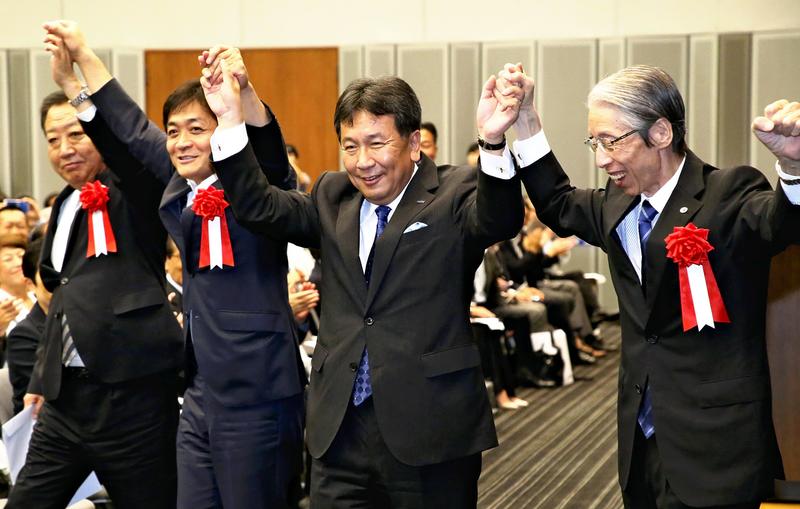
The Constitutional Democratic Party of Japan (CDPJ), the Democratic Party for the People (DPFP), the Social Democratic Party (SDP) and the Reviewing Group on Social Security Policy on Monday notified both houses of the Diet of the formation of a unified group. The number of lawmakers belonging to the new group stands at 61 in the House of Councillors and 120 in the lower house, making it the largest lower-house opposition group since the launch of the second Abe Cabinet.
"As a large group, we will be unified to counter the powerful administration of Prime Minister Shinzo Abe. We will proceed with activities to achieve a change of government in the next general election," CDPJ leader Yukio Edano said Monday at a party meeting held in the Diet building.
Jun Azumi, the chairman of the group's Diet affairs committee, said to reporters, "By acting together in debates we hope to clarify issues in a manner that is easily understandable by the general public." At an extraordinary Diet session to be convened Friday, the group intends to challenge the government over Japan-U.S. trade agreements and the consumption tax hike to 10 percent, among other issues.
With regard to the contentious issue of who would fill key posts in committees of both houses, 11 chief-director positions were given to members of the DPFP in the lower house, including Shu Watanabe of the Budget Committee. A senior CDPJ official said, "We took many things into consideration to ensure it worked out."
However, in the upper house, where dissatisfaction smolders in the DPFP, appointments for key positions were not announced.
DPFP upper house member Mitsuru Sakurai, who has expressed skepticism about the formation of a unified group, submitted his resignation from the party on Monday. However, DPFP Secretary General Hirofumi Hirano refused to accept it and included Sakurai in the group when he notified the houses of its formation.
"We need to create a policy-making group involving the ruling parties. I have been skeptical about forming a unified group among opposition parties," Sakurai said at a press conference.
Among the four camps, there are differences of opinion on constitutional amendments, nuclear policy, and other issues, prompting concern over whether they will be able to cooperate with each other in deliberations in the extraordinary Diet session.
Read more from The Japan News at https://japannews.yomiuri.co.jp/







